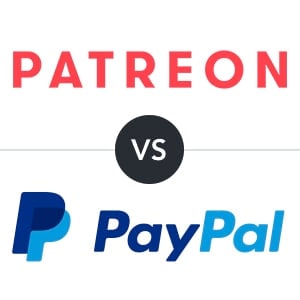You can raise business funds on Kickstarter or GoFundMe. A few key differences (rewards, fees, types of campaigns) will help you decide which one works better.
Our content reflects the editorial opinions of our experts. While our site makes money through
referral partnerships, we only partner with companies that meet our standards for quality, as outlined in our independent
rating and scoring system.
If you’re familiar with crowdfunding, you probably know that Kickstarter is generally known for crowdfunding campaigns that support people who make things such as tech gizmos and fantasy board games, while GoFundMe tends to be more for personal causes. While this is essentially accurate, it’s worth drawing some finer distinctions between the two.
In this GoFundMe versus Kickstarter post, we’re going to compare and contrast these two platforms in greater detail so you can find the best option for your situation.
Kickstarter VS GoFundMe: At A Glance Comparison
|
Kickstarter |
GoFundMe |
| Crowdfunding Type |
Rewards |
Donations |
| Platform Fee |
5% |
0% |
| Payment Processing Fee |
3% + $0.20 per pledge OR 5% + $0.05 per pledge under $10 |
2.9% + $0.30 per donation |
| Funding Duration |
60 days |
Unlimited |
| Funding Model |
All or Nothing |
Keep What You Raise |
| Prescreening |
|
|
Where Kickstarter Wins
- Kickstarter is one of the most popular crowdfunding platforms. If your campaign is accepted, you’ll have a wide audience to pitch your idea to in hopes of getting funded.
- By using Kickstarter, you can get an idea of the level of interest in your idea. If you’re launching a product, for example, you can gauge how well it may do in a broader market.
- Just as you can gauge interest, you can also gather crucial feedback to help improve your product or business.
- While Kickstarter charges a platform fee, it is competitively priced.
Where Kickstarter Falls Short
- All Kickstarter campaigns are screened before they can go live.
- To be approved, your project must create something that can ultimately be shared with your backers upon the successful completion of your campaign.
- Kickstarter gets criticized online by both backers and campaigners. Backers complain of shady companies that bail on their obligations by either failing to send them the promised rewards or sending broken/defective rewards. Campaigners complain of a lack of timely support from the company.
Where GoFundMe Wins
- GoFundMe lets you launch your campaign immediately, though it can always take down your campaign later on if you violate the rules.
- While many crowdfunding platforms charge a platform fee (typically 5%), GoFundMe is an exception. There are no platform fees to launch your campaign, although payment processing fees will apply.
- While both platforms let campaigners give rewards to their backers, rewards-giving is optional with GoFundMe.
- GoFundMe operates under the Keep What You Raise crowdfunding model. You can set your campaign duration to whatever you want it to be. At the end of the funding period, you will receive whatever you’ve raised, regardless of whether or not you’ve hit your target.
Where GoFundMe Falls Short
- GoFundMe is a platform for charitable crowdfunding. While GoFundMe doesn’t prohibit business fundraising, most of its campaigns are about raising money to help people pay their medical bills and/or cope with personal tragedies and disasters.
- GoFundMe has seen complaints from users, with many stating that it was difficult to collect the money they raised. However, GoFundMe’s user reviews have improved over the past few years, indicating that the company has taken into account past criticism and has improved the experience of the average campaigner.
Kickstarter VS GoFundMe: Pricing Comparison
Kickstarter charges a 5% platform fee. This is pretty standard when compared to other crowdfunding sites. It also charges processing fees of 3% + $0.20 per pledge OR 5% + $0.05 per pledge under $10.
On the other hand, GoFundMe does not charge any platform fees. You will have to pay processing fees of 2.9% + $0.30 per donation.
Kickstarter VS GoFundMe: Terms Comparison
The application process, campaign requirements, and terms of Kickstarter and GoFundMe. Here’s a breakdown of what to expect from each platform.
Kickstarter Terms
The application process is pretty easy with Kickstarter. Simply fill in information about yourself and your campaign and submit. Most (though not all) campaigns are flagged for further review based on the application details. Ultimately, Kickstarter estimates that about 80% of the campaign submissions it receives are approved.
Kickstarter’s rules for its campaigns are as follows:
- Projects must create something to share with others
- Projects and backer statistics must be honest and clearly presented
- Projects can’t fundraise for charity
- Projects can’t offer equity
- Projects can’t involve prohibited items
All projects must be cleared by Kickstarter before they can go live. This process can take up to three days.
Kickstarter campaigns are all-or-nothing when it comes to collecting the funds you raise from donors. What does this mean?
It means that with Kickstarter, your funding campaign can last anywhere from one to 60 days (Kickstarter recommends setting a funding period of 30 days, as data indicates that shorter campaigns are more likely to reach their target). If you don’t reach your fundraising goal by the end of your campaign, you won’t get any of the money raised. It will instead go back to the donors who sent it.
Since only about 39% of Kickstarter projects reach their funding goal, roughly 61% of Kickstarter campaigns result in the project taking in $0. While this sounds bad, Kickstarter makes a case for all-or-nothing funding with three points:
- It takes the pressure off of creators who fall short of their fundraising goal — otherwise, backers might expect campaigners to deliver results without the funds necessary to do so.
- Motivation. As Kickstarter puts it, “Adding a sense of urgency motivates your community to spread the word and rally behind your project.”
- Pointing to the data that shows that the projects that reach 60% of their funding goal end up meeting their funding goals 98% of the time, Kickstarter simply states that “it works.”
Do these arguments truly justify Kickstarter’s all-or-nothing funding policy? I’ll leave you to be the judge of that.
GoFundMe Terms
Like Kickstarter, GoFundMe has an easy application process. Unlike Kickstarter, however, GoFundMe lacks a similar set of concrete rules for what constitutes a proper campaign on its site and likewise does not require campaigners to get pre-clearance before launching.
Although campaigns are not prescreened, GoFundMe forbids campaigns that involve illegal activities, weapons, porn, hate speech, fraud, drugs, and the like.
Which Is Best For My Business?
While both platforms can help you achieve your fundraising goals, one option may be better suited for your business.
Choose Kickstarter If…
- You want to raise money for a business/entrepreneurial venture using the crowdfunding platform that’s most optimized for such ventures
- Your project involves producing something that can be offered to your backers in exchange for their support
- Your project is creative in nature (art, tech, film, board games, etc.)
Choose GoFundMe If…
- You want to raise money for a personal cause/emergency/tragedy, whether it be yours or that of a friend or family member
- You want to raise money for a business/entrepreneurial venture but want to avoid paying a 5% platform fee
- You want to raise money for a business/entrepreneurial venture but want to keep whatever you raise, regardless of whether you reach your funding goal
As the two leading crowdfunding companies, Kickstarter and GoFundMe, target different audiences, it wouldn’t make much sense to name a winner and a loser in this comparison.
However, by highlighting the similarities and differences between the two outfits, we hope to give you a better sense of which platform you should use, depending on your funding needs.












